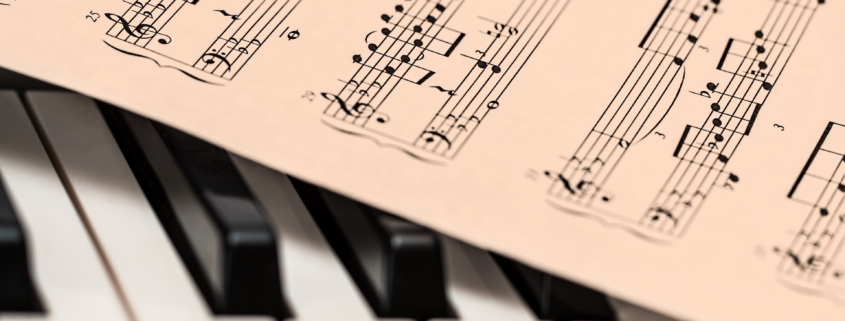Inspirational Musicians Who Learned Their Instrument Later in Life
In a world where prodigies often steal the spotlight, it’s easy to forget that learning an instrument is a journey that can begin at any age. Many people feel that if they haven’t picked up an instrument by their teens, it’s too late. However, numerous successful musicians have proven that passion and dedication can overcome any age barrier. This article highlights inspirational musicians who learned their instruments later in life, showcasing their journeys and the lessons we can learn from them.
The Power of Persistence
Andrés Segovia – Classical Guitar Andrés Segovia, often regarded as one of the greatest classical guitarists of all time, didn’t start playing the guitar until he was 15. While this might not seem very late, in the world of classical music, many start their training much earlier. Segovia’s late start didn’t hinder his progress. His dedication to the instrument and relentless practice helped him revolutionize classical guitar music, earning him a place in history as a pioneer who elevated the guitar to a concert instrument.
Toni Morrison – Piano Renowned novelist Toni Morrison took up piano lessons in her 50s. Though she was already an established writer, Morrison’s foray into music was driven by a desire to explore and express herself in new ways. Learning piano later in life provided her with a creative outlet and a new perspective on artistic expression. Her experience underscores that it’s never too late to start learning and that new endeavors can enrich our lives in unexpected ways.
Captain Beefheart (Don Van Vliet) – Saxophone and Harmonica Captain Beefheart, known for his experimental and avant-garde music, didn’t start playing the saxophone and harmonica until his early 20s. He was primarily a visual artist before transitioning into music. Despite starting later than many of his peers, Beefheart’s unique approach and unconventional style helped him carve out a niche in the music world, influencing numerous artists across various genres.
Sister Rosetta Tharpe – Guitar Sister Rosetta Tharpe, often called the “Godmother of Rock and Roll,” didn’t pick up the guitar until she was a teenager. While she had a strong musical background in gospel singing from a young age, her transition to guitar playing and combining it with gospel music was revolutionary. Her innovative style bridged the gap between gospel and rock and roll, paving the way for future generations of musicians.
Bill Withers – Guitar Bill Withers, famous for hits like “Lean on Me” and “Ain’t No Sunshine,” didn’t start his music career until his early 30s. Before that, he worked as a mechanic in the Navy and later in a factory. Withers bought his first guitar at the age of 32 and began writing songs and recording demos while working full-time. His late start didn’t stop him from becoming one of the most influential soul singers and songwriters of his time, proving that it’s never too late to pursue your passion.
Charles Bradley – Singing Charles Bradley, known as the “Screaming Eagle of Soul,” spent most of his life working odd jobs and performing as a James Brown impersonator before being discovered in his 60s. Bradley didn’t release his debut album until he was 62. His late start in the music industry didn’t diminish his impact; his powerful voice and emotive performances earned him critical acclaim and a dedicated fan base.
Susan Boyle – Singing Susan Boyle gained international fame after appearing on “Britain’s Got Talent” at the age of 47. Before her breakout performance, Boyle had a modest background and faced numerous personal challenges. Her story is a testament to the idea that talent and determination can emerge at any age. Boyle’s success story has inspired countless individuals to pursue their dreams, regardless of their age.
Rodrigo y Gabriela – Guitar Duo Rodrigo Sánchez and Gabriela Quintero, the Mexican guitar duo known for their virtuosic playing and fusion of flamenco, rock, and metal, didn’t fully dedicate themselves to their instruments until their early 20s. They initially played in a thrash metal band before deciding to focus on acoustic guitar. Their late start in the acoustic guitar world didn’t hinder their progress; instead, it brought a unique perspective to their music, allowing them to create a distinctive sound that has captivated audiences worldwide.
Lessons Learned
It’s Never Too Late to Start – These musicians prove that age is just a number when it comes to learning an instrument. Whether you start in your 30s, 50s, or even later, the key to success is dedication and passion.
Embrace Your Unique Journey – Each of these musicians brought their life experiences to their music, enriching their artistry. Embrace your unique background and let it inform your musical journey.
Consistent Practice is Key – Regardless of when you start, consistent practice is crucial. Dedication to your craft will yield results, no matter your age.
Seek Inspiration and Support – Surround yourself with supportive individuals and seek inspiration from others who have embarked on similar journeys. Community and mentorship can significantly impact your progress and motivation.
Conclusion
The stories of these musicians serve as powerful reminders that it’s never too late to learn an instrument. Their journeys show that persistence, passion, and a willingness to embrace new challenges can lead to incredible achievements. Whether you’re considering picking up an instrument for the first time or returning to one after years away, let these musicians inspire you to pursue your musical dreams. Age is not a barrier; it’s an opportunity to bring a lifetime of experiences to your musical expression.



